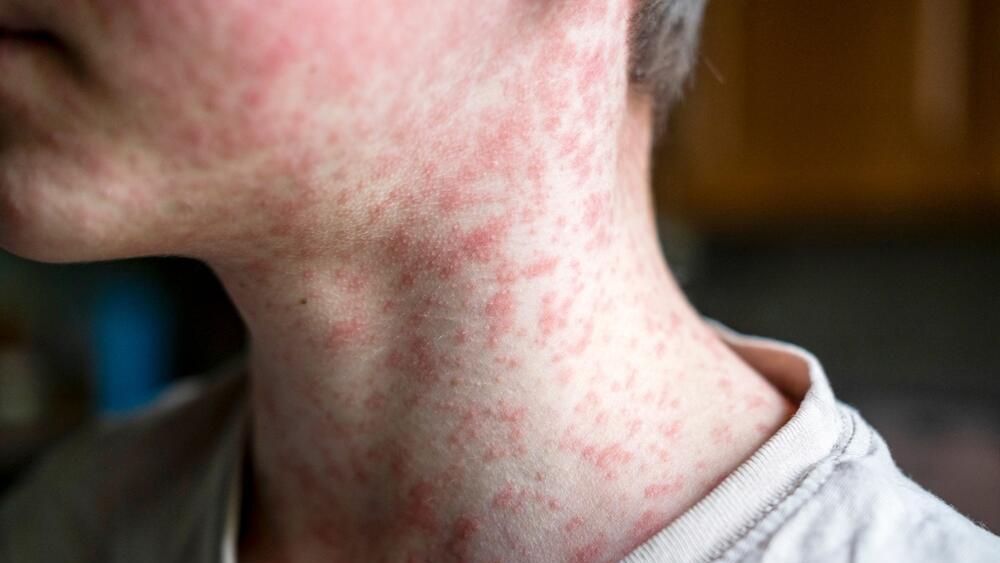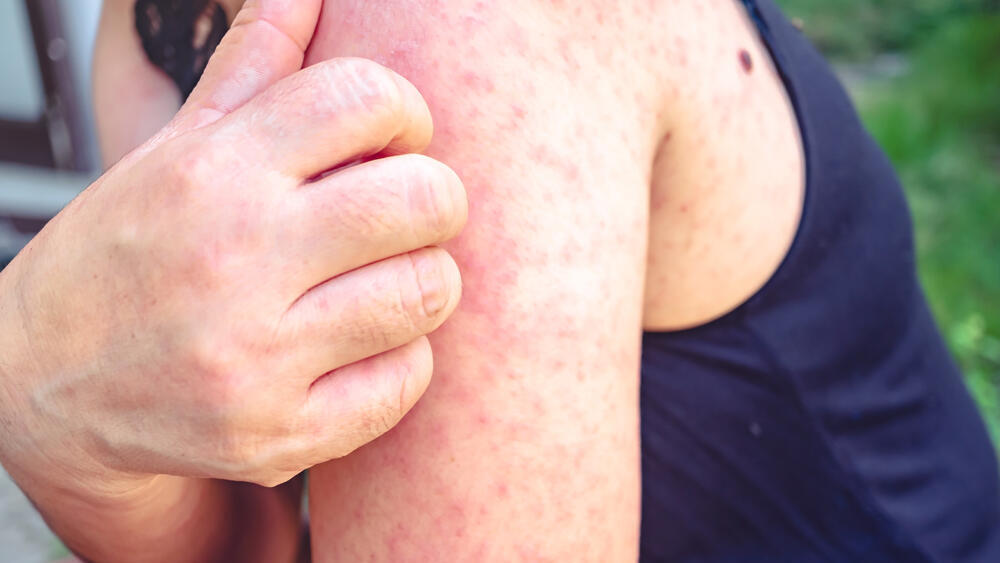Measles is back in the headlines, once again due to vaccine opponents enabling the disease’s resurgence. This time, the outbreak is in the United States. It began in late January and, as of February 27, 164 people— mostly unvaccinated children — had been infected. For comparison, a total of 285 cases were recorded in the U.S. throughout all of 2024.
The largest outbreak is in Texas, where the disease has claimed the life of a school-age child who was not vaccinated against measles. So far, 32 people have been hospitalized due to the infection.
Measles is an extremely dangerous viral disease. Even if a person survives the illness without immediate complications, there is still a risk of death years later from its delayed effects. It is the most contagious disease known to humans: In an unvaccinated population, a single measles patient will infect an average of 18 others. The virus lingers in enclosed spaces for up to two hours, meaning that people can contract the disease simply by being in a room, office, bus or doctor’s waiting room where an infected person had previously been.
Fortunately, the measles vaccine is one of the most effective available. However, because the virus is so highly contagious, at least 95% of the population must be vaccinated to prevent outbreaks.
In the past, that threshold was met, and measles was eliminated in many parts of the world. In 2000, the U.S. was even declared “measles-free.” But as vaccines succeeded in eradicating the disease, people forgot how dangerous it truly is. Vaccine opponents exploited this by spreading fear about the MMR (measles, mumps, and rubella) vaccine, falsely linking it to autism. This misinformation originated from a fraudulent study published in 1998, which was later retracted and discredited in 2010.
In reality, there is no link between the MMR vaccine and autism. The risk of serious side effects from the vaccine is minimal — especially when compared to the severe risks associated with measles itself.
Vaccine hesitancy fuels the resurgence
Due to fearmongering, the number of people opting out of vaccinations — without any valid medical reason — has increased, allowing measles to make a comeback. In the Texas outbreak, for example, around 18% of schoolchildren are unvaccinated.
One of the most vocal figures behind anti-vaccine rhetoric is Robert F. Kennedy Jr., who is now the U.S. secretary of health. Even after taking office, Kennedy continued to spread misinformation about measles and vaccines. During a February 26 Cabinet meeting, he downplayed the severity of the Texas outbreak, misrepresented hospitalization numbers, and failed to mention vaccines altogether. He also canceled two key committee meetings essential to the U.S. vaccination program and scrapped a campaign promoting flu vaccination.
Get the Ynetnews app on your smartphone: Google Play: https://bit.ly/4eJ37pE | Apple App Store: https://bit.ly/3ZL7iNv
However, under pressure from state health officials in outbreak-affected areas, Kennedy recently released a statement acknowledging that the MMR vaccine is essential for preventing measles, which can be deadly, “especially for unvaccinated individuals.” Still, his statement appeared to be mere lip service; he did not explicitly urge the public to get vaccinated and used language favored by anti-vaccine activists, framing vaccination as a matter of “personal choice.”
In a subsequent interview with Fox News, Kennedy once again avoided mentioning vaccines and instead promoted ineffective measles treatments, such as cod liver oil and the steroid budesonide.
No cure, only prevention
Cod liver oil is in no way an evidence-based treatment for measles, emphasized Sean O’Leary, chair of the infectious diseases committee at the American Academy of Pediatrics, in an interview with The New York Times. O’Leary noted that he had never heard of any doctor recommending it for measles. Similarly, steroids do not treat measles itself, though they may help in cases of measles-related encephalitis (brain inflammation).
Kennedy has also advocated using vitamin A as a treatment for measles, previously claiming that “chicken soup and vitamin A” are the cure. They are not. There is no cure for measles. While vitamin A is used to treat the disease in areas with widespread malnutrition, where deficiencies can increase the risk of death, it does not prevent infection or disease progression. It is also sometimes administered to hospitalized infants and children with measles to reduce the risk of complications, though its effectiveness in well-nourished populations is less clear. Additionally, excessive vitamin A intake can be toxic.
The dangers: pneumonia, brain inflammation, and death
Measles typically begins with a high fever, cough, runny nose and red eyes. A rash then appears, starting on the neck and head before spreading downward, eventually fading in the same order.
About 30% of measles patients will develop complications, with the risk being even higher for children under age 5. If 10,000 people contract measles:
- 2,000 will require hospitalization,
- 1,000 children will suffer ear infections, potentially leading to permanent hearing loss,
- 230 will experience febrile seizures,
- More than three will develop blood clotting issues,
- 10 will develop encephalitis,
- 500 will contract pneumonia, the most common cause of measles-related deaths,
- Up to 30 children will die from complications.
In developing countries, the fatality rate is much higher. Even those who survive measles may later die from a rare, incurable complication called subacute sclerosing panencephalitis (SSPE), a degenerative brain condition that develops years after infection. Estimates suggest that between 4 and 11 of every 100,000 measles survivors will develop SSPE, though a 2017 study found that it may be more common, affecting as many as 1 in 1,400 measles-infected children and 1 in 600 infected infants.
Additionally, measles weakens the immune system’s memory for two to three years, making individuals more susceptible to infections they had previously fought off or been vaccinated against. This is why, when measles vaccinations increased, deaths from other infectious diseases also declined. The vaccine not only prevents measles and its severe complications, like SSPE, but also provides indirect protection against other illnesses.
The only way to avoid these complications is to prevent measles infection altogether. Fortunately, the MMR vaccine is highly effective: Two doses reduce the risk of infection by 97%.
It is also extremely safe. Out of 10,000 vaccinated individuals, only about four children may experience febrile seizures, and fewer than one will have an allergic reaction or temporary blood clotting issues — most of which resolve on their own.
So, vaccinate your children. If you haven’t been vaccinated yourself, get the shot. Doing so will protect you from suffering, prevent needless deaths, and stop the spread of misinformation and fearmongering. Vaccination also safeguards those who cannot receive the vaccine for medical reasons. By getting vaccinated, you’re not only protecting yourself — you’re protecting everyone around you.
This article was first published on the blog Noam's Ark - Biological Thoughts. Thanks to Yonat Eshchar for her assistance.
Dr. Noam Leviatan holds a doctorate in biology (Ph.D.) from the Weizmann Institute of Science.
First published: 22:30, 03.10.25




